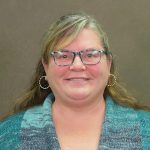At CLC, high-quality teaching and learning are extremely important. To foster high-quality teaching and learning, CLC has developed a Student Learning Assessment Program. The Student Learning Assessment Program supports high-quality teaching and learning both inside and outside the classroom. The Student Learning Assessment Program provides the tools, methods, and support to faculty and staff to assess what students can do with what they know. After completing the assessment process, faculty and staff can make changes based on the assessment results to further improve student mastery of specific learning outcomes. To measure these different types of learning outcomes, CLC has created four distinct types of assessment processes to promote high-quality teaching and learning and continuous improvement. These methods are College-wide assessment, Program-level assessment, and Course-level assessment, and Co-curricular Assessment.
College-Wide Assessment
CLC has created three broad college-wide learning goals, called “outcomes,” for all students. Under those outcomes are eleven specific skills, called “competencies”. The following are the general outcomes and specific skills that CLC expects students to achieve.
Outcome # 1: Communicate Effectively
Understand and communicate effectively with others using a variety of contexts and formats, which include writing, speaking, reading, listening, and interpersonal skills.
Competencies:
Demonstrate oral communication skills
Demonstrate written communication skills
Demonstrate reading and listening skills
Demonstrate interpersonal communication skills
Outcome # 2: Solve Problems
Identify, evaluate, and apply critical thinking and creative problem-solving skills using multiple perspectives and appropriate technologies.
Competencies:
Assess alternative solutions to a problem
Analyze and follow a sequence of operations
Apply abstract ideas to concrete situations
Utilize appropriate technology
Outcome # 3: Demonstrate Personal and Social Responsibility
Develop and demonstrate personal and social responsibility and teamwork skills.
Competencies:
Apply ethical principles in decision-making
Work as a team member to achieve shared goals
Discuss/compare characteristics of diverse cultures and environments
College-wide assessment reporting occurs on an annual basis.
To submit a college-wide assessment report for the 2024-25 academic year, please click here.
Program/Department Level Assessment
CLC Programs and Departments have also created Program/Department level objectives that must be assessed for students enrolled in classes in a technical program or liberal arts department. Under program/department-level assessment, methods of measurement are broader than course-specific assessment outcomes but less broad than college-wide outcomes. Program/Department outcomes are listed on each Program or Department webpage. CLC faculty collaborate annually to review Program/Department level assessment data and make changes based on the results to ensure that what students are learning is in alignment with Program/Department objectives at a high rate of proficiency. Program/Department level assessment reporting occurs on an annual basis.
To submit a program/department assessment report for the 2024-2025 academic year, please click here.
Course Level Assessment
Course Level assessment is the most common assessment tool and is conducted on a daily or weekly basis. Course-level assessment is an assessment that faculty members do to determine grades for student assignments and projects, as well as for the course itself. All CLC courses have common course outlines identifying course-specific and college-wide outcomes that students will be expected to achieve upon completion of the course. When teaching a course, CLC faculty must ensure the course content and specific course-level assessment measures meet the course objectives. Course Level Assessment activities should occur regularly within the classroom.
Co-curricular Assessment
Co-curricular activities take place outside the classroom but reinforce or supplement the classroom curriculum in some way. They may be ungraded and may not offer any form of academic credit, but they do provide complementary learning of some form. Co-curricular learning is evaluated through assessment utilizing CLC’s College-Wide Assessment Outcomes and Competencies. An example of a co-curricular learning evaluation tool can be found at this link.
To submit a co-curricular assessment report for the 2024-2025 academic year, please click here.
Contact Information
| Photo | First Name | Last Name | Position | Department | Phone | Alt. Phone: | URL | wdt_ID | Details | |
|---|---|---|---|---|---|---|---|---|---|---|
 |
Aubrey | Beadell | Advisor | TRIOStudentSupportServices | (218) 855-8014 | aubrey.beadell@clcmn.edu | 1 | More details | ||
 |
Nick | O'Reilly | Occupational Skills Program College Lab Assistant | OccupationalSkills | 218-855-8077 | Nicholas.oreilly@clcmn.edu | 2 | More details | ||
 |
Kevin | Lomax | Automotive Lab Assistant | Automotive Faculty | 218-855-8000 | KLomax@clcmn.edu | 3 | More details | ||
 |
Jody | Flynn | Accessibility Services Assistant | Accessibility | 218-855-8056 | jody.flynn@clcmn.edu | 5 | More details | ||
 |
Deana | Bobzien | Instructor | CollegeCareerStudies - Mathematics - Supportive Services | 218-855-8339 | deana.bobzien@clcmn.edu | 7 | More details | ||
 |
Brianna | Rajkowski | Advisor | TRIOStudentSupportServices | 218-855-8228 | brianna.rajkowski@clcmn.edu | 8 | More details | ||
 |
Tajia | Anderson | PSEO Specialist | Admissions - CollegeCreditInHighSchool- PSEO | (218) 855-8079 | tajia.anderson@clcmn.edu | 10 | More details | ||
 |
David | Gray | Instructor | History | 218-855-8189 | david.gray@clcmn.edu | 14 | More details | ||
 |
Jim | Nagy | Adjunct Instructor | GraphicDesign | 218-855-8157 | james.nagy@clcmn.edu | 15 | More details | ||
 |
Brandon | Schneider | Instructor | HeavyEquipment | 218-894-5179 | brandon.schneider@clcmn.edu | 16 | More details | ||
 |
Natalia | DePauw | Director of Dual Enrollment | PSEO - CollegeCreditInHighSchool - Advising | 218-855-8263 | natalia.depauw@clcmn.edu | 18 | More details | ||
| Amy | Disterhaupt | Admissions Specialist | Admissions | 218-855-8250 | amy.disterhaupt@clcmn.edu | 20 | More details | |||
 |
Nick | Heisserer | Dean of Brainerd Career & Technical Programs | Administration | 218-855-8067 | nick.heisserer@clcmn.edu | 21 | More details | ||
 |
Matthew | Krueger | Environmental Health and Safety Officer | Maintenance - Security - Safety | 218-855-8115 | matthew.krueger@clcmn.edu | 22 | More details | ||
 |
Mark | Lindquist | Instructor | Music | 218-855-8203 | mark.lindquist@clcmn.edu | 23 | More details | ||
 |
Jeremy | Goddard | Bookstore/Print Shop | Bookstore Supportive Services | 218-855-8146 | Jeremy.Goddard@clcmn.edu | 25 | More details | ||
 |
Sarah | Jennissen | Instructor | PracticalNursing | 218-894-5308 | sarah.jennissen@clcmn.edu | 26 | More details | ||
 |
Cash | Robinson | Academic Advisor | TRIOUpwardBound - Advising | 218-855-8035 | cash.robinson@clcmn.edu | 28 | More details | ||
 |
Ryan | Wright | Enrollment Representative | Admissions - CampusTours | 218-855-8013 | ryan.wright@clcmn.edu | 31 | More details | ||
 |
Steve | Wenzel | Instructor | PoliticalScience | 218-855-8073 | stephen.wenzel@clcmn.edu | 32 | More details | ||
 |
Julie | Woitalla | Instructor | NursingASDegree - PracticalNursing | 218-855-8168 | julie.woitalla@clcmn.edu | 33 | More details | ||
 |
Josh | Zaborowski | Upward Bound Advisor | TRIOUpwardBound - Assessment | 218-855-8032 | joshua.zaborowski@clcmn.edu | 35 | More details | ||
 |
Paul | Zimmerman | Instructor | Diesel Faculty | 218-894-5143 | paul.zimmerman@clcmn.edu | 36 | More details | ||
 |
Ed | Uhlenkamp | Instructor | FarmBusinessManagement | 218-894-5160 | edward.uhlenkamp@clcmn.edu | https://dynamicforms.ngwebsolutions.com/ShowForm.aspx?RequestedDynamicFormTemplate=32c40b45-028c-46d6-9f79-9c1edc503713 | 38 | More details | |
 |
James | Velde | Instructor | FarmBusinessManagement | 218-234-3981 | james.velde@clcmn.edu | https://dynamicforms.ngwebsolutions.com/ShowForm.aspx?RequestedDynamicFormTemplate=cff3bff4-005f-4f5c-82a8-4c6aed02c8e9 | 39 | More details |
Photo:
First Name:
Last Name:
Position:
Phone:
Email:
